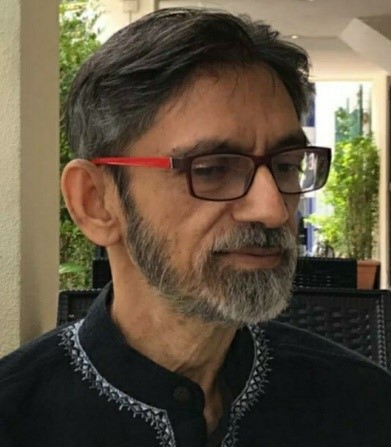Keynote Speaker

Prof S. A. Abbasi
CSIR Emeritus ProfessorCentre for Pollution Control & Environmental Engineering
Pondicherry University
India
Speech Title: The daunting problem of sewage treatment in developing countries and SHEFROL® Technology as a possible solution
Abstract: India is one of the world's largest economies as well as one of the most advanced countries vis a vis science and technology. Yet as much as 80% of the sewage that's generated in India, , estimated as 1000 billion litres per year , is discharged in its raw form into water bodies or on land. Similar is the situation in most other developing countries. It is so because the cost and other resources needed to achieve sewage treatment by the conventional activated sludge process and its variants are prohibitive. The alternative technologies requiring lesser inputs of machinery and maintenance, viz the ones based on constructed wetlands, have large land requirements. In recent years floating wetlands have been introduced but they are too slow to be effective in treating raw sewage.
But disposal of untreated sewage into water-bodies is playing havoc with the environmental health. Besides polluting rivers, lakes, ponds, and open lands (on which sewage is discharged), it harms the human health in a myriad ways. Apart from the diseases caused by direct contamination, it promotes breeding of disease vectors. As a result not only millions of productive man-days are lost every year but also billions of rupees have to be spent in curing sewage-related diseases, severely stressing the health care system.
In recent years these authors have developed a novel sheet-flow-root-level (SHEFROL) bioreactor to meet this challenge. The innovation has received a patent as well as a trademark and has been licensed for commercialisation. Several studies carried out at bench and pilot scales have established that by innovative use of short-statured macrophytes in soil-less and scaffold-free channels, through which sewage is made to flow at root level, very substantial primary and secondary wastewater treatment is achieved along with significant tertiary treatment. The system design ensures such an efficient turbulation as well as diffusive and plant-mediated natural aeration that no mixers or aerators are needed. The system essentially runs on solar and gravitational energy. Further details on the technology are presented.
Biography: Prof S. A. Abbasi has been a full university professor and centre director during 1987-2015 and is an Emeritus Professor since then. Prior to it he was Head-in-charge of the Water Quality & Environment Division at the Centre for Water Resources, Kozhikode (1979-87), and a Visiting-cum-adjunct Professor at California State University (1984-1987). He has also been a Visiting Professor at the universities of Minnesota, Florida, California−Berkeley, Malaya and Al-Ahsa.
With 45 books, over 400 papers in indexed journals, 12 patents, over 17,000 citations and a Hirsch Index currently at 70, Prof. Abbasi is among the world’s foremost experts in the fields of process safety and environmental engineering. In the recent Stanford University study, he was ranked among the world’s top 0.5% scientists, and among the top 100 Indian scientists, independent of the area of specialisation [https://www.thehindu.com/news/cities/puducherry/pondicherry-university-professor-felicitated/article33349572.ece] .
Among numerous coveted honours and awards received by him are the National Design Award in Environmental Engineering, the IPCL award for Safety and Hazard Management in Petroleum Industries, the National Hydrology Award, the International Desalination Association’s prize, and fellowships of the National Academy of Sciences and the Indian Institute of Chemical Engineers. Prof Abbasi is also well-known for his poetry (ghazal and geet), fiction, and his work on fostering inter-faith harmony.
In 1991 Prof Abbasi had set up, and has led since then, a research group on accident forecasting, risk assessment, and occupational safety at Pondicherry University. The group is among the most productive in Asia and has spearheaded the Indian R & D thrust in this field all through.
